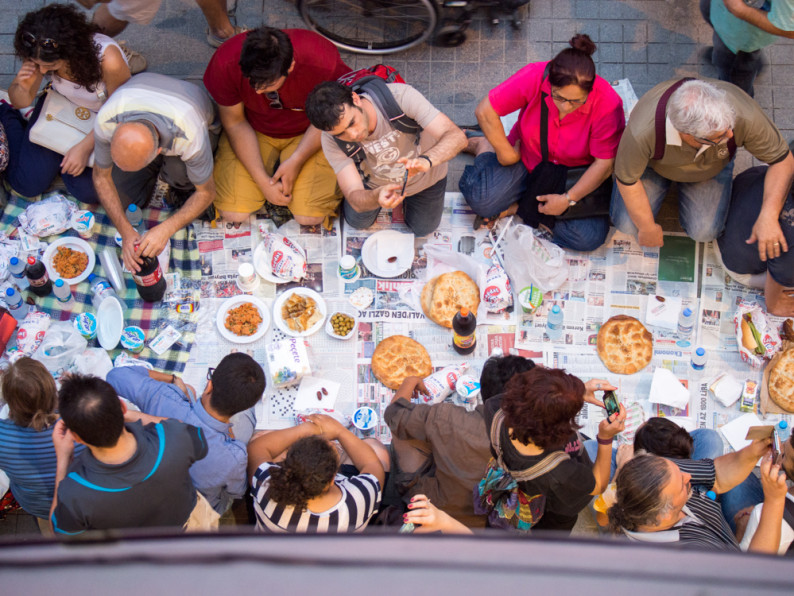If you are traveling to Istanbul this summer between June 18th and July 16th, then you are in for a delicious surprise. These dates encompass the ninth month of the Islamic calendar called Ramadan (Ramazan in Turkish). Turkey’s population is 97.8% Muslim and about half of the Muslims in Turkey participate in Ramazan every year. Muslims observe Ramazan by fasting between sunrise (sahour) and sunset (iftar). So why is this such an appetizing surprise? Fasting indicates the importance of food within Islamic and Turkish culture. A day without food translated to an evening brimming with Turkish delicacies. The time spent fasting is simultaneously spent in the kitchen concocting soups, mezes, and other traditionally Turkish meals. If you want the local experience you must partake in a ramazan meal.
The iftar, or breaking of the fast, occurs the moment the sun sets. As the call to prayer rings through the city a chorus of spoons fills every home. Muslims arrive at family gatherings or restaurants hours before iftar. Ramazan is a time to celebrate family and community with extraordinary food. Some families celebrate in a very traditional manner by breaking the fast with a date and water before visiting the mosque. After the mosque these families eat a stew with freshly baked bread. Due to Istanbul’s urban regeneration Ramazan has moved from the private sphere and into the public space. Families flock to restaurants to indulge in multicourse meals that showcase traditional Turkish dishes. These may include honey and cheeses, vegetable dishes, salads, meatballs, Turkish tea, and ayran. I’ve found that Turkish food is best eaten by taking a chunk of bread and swirling it in a combination of savory sauces and yogurts. The Ramazan table is a chaotic jumble of laughter, music, and friends reaching across the table for a second helping of buffalo clotted cream.
This is a wonderful time to visit Istanbul and try desserts exclusive to Ramazan. These desserts are light and simple and conclude the meal with a refreshing note. You cannot pass up the chance to try güllaç an exclusively Ramazan dessert. Güllaç is made by soaking sheets of phyllo dough in a mixture of milk, sugar, and rosewater. Coconut is added between the layers which resemble a rectangular slice of cake. The cold pastry is then topped with pomegranates or pistachios.
To have a local Ramazan experience, try going out one night after the sunset and walking the streets of Istanbul. Depending on where you walk you will see hundreds or even thousands of people on the street breaking the fast. Families bring blankets and roll them out onto the cobblestone streets next to boxes of bread and vegetables they have spent all day cooking. In the Hippodrome you can listen to live music while vendors roam the streets selling toys and sweets for children.
When visiting Istanbul during Ramadan there are some important considerations to take into account. The traffic after iftar in Istanbul is horrendous, so keep this in mind if you plan on getting a taxi after the sun sets. Additionally, not all establishments sell alcohol during Ramadan. You will most likely not encounter this if you are within Istanbul, but be prepared if you are traveling outside the city. If you are visiting a more conservative location, say Bursa or Iznik, the majority of the people will be fasting, so be courteous and refrain from eating or drinking in the streets.
Afiyet olsun!
Source: Original article is posted on Atdaa.com, by author Marita Ervin.






